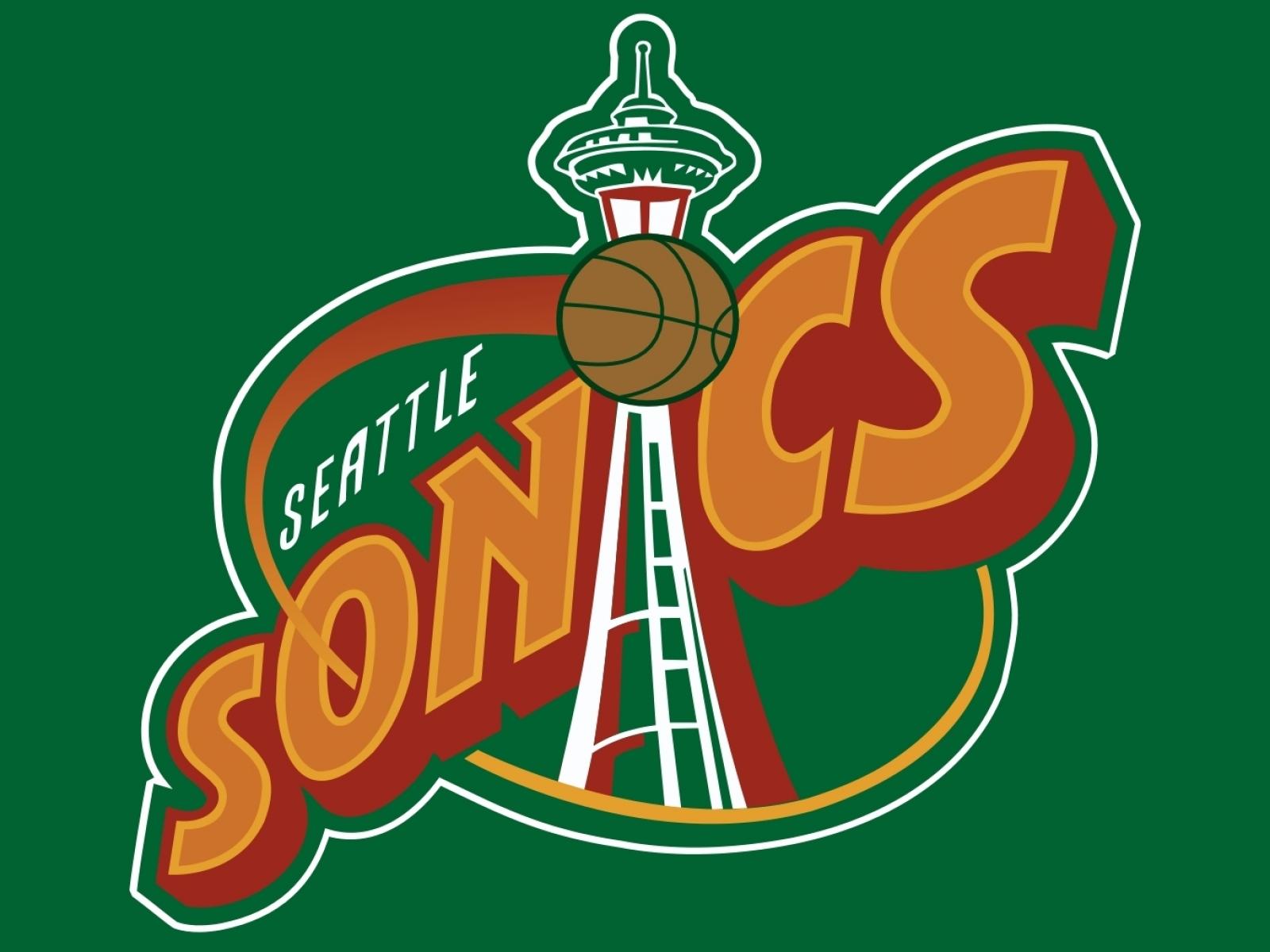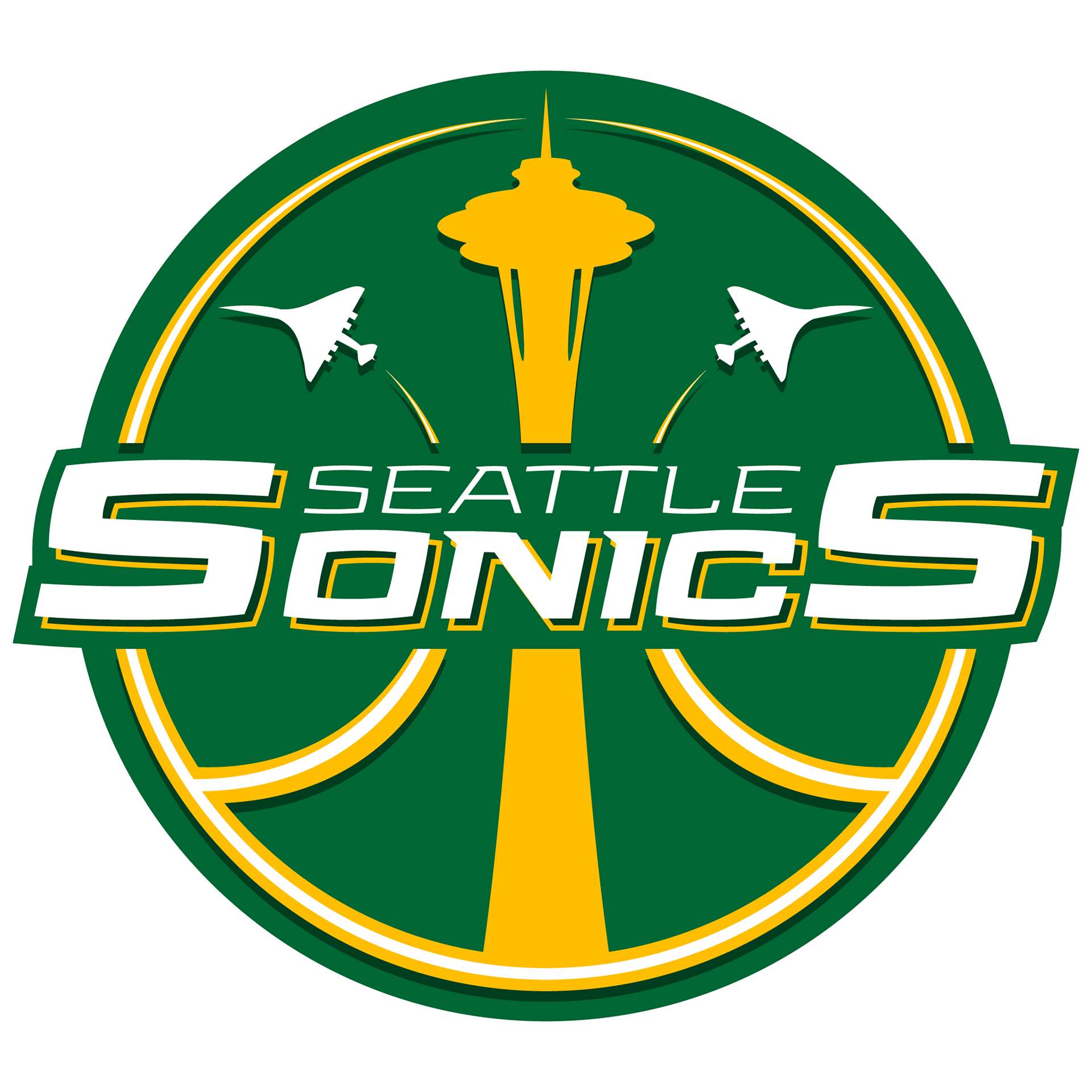What Happened To Seattle Supersonics: The Untold Story Of A Beloved NBA Franchise
So here's the deal, basketball fans. What happened to Seattle Supersonics? This ain't just a question; it's a wound that still bleeds in the hearts of many Sonics die-hards. Imagine this: one moment you're cheering for a team that gave you countless memories, and the next, poof! They're gone, relocated, erased from the city that once adored them. But hold up, there's more to the story than what meets the eye. Let's dive deep into this saga together, shall we?
You see, the Seattle Supersonics weren't just a basketball team. They were a symbol of pride, passion, and resilience. From their glory days in the '70s to the electrifying performances in the '90s, the Sonics captured the hearts of millions. But then, something went south. Real south. And that's exactly what we're about to uncover—what happened to Seattle Supersonics and why it matters more than you think.
Now, I get it. You might be thinking, "Why does this even matter now?" Well, because history has a way of repeating itself. Understanding what led to the Supersonics' departure can teach us valuable lessons about loyalty, business, and the ever-changing landscape of professional sports. So buckle up, because we're about to take a trip down memory lane.
- Annie Lennox Net Worth Discover The Queen Of Alternative Musics Financial Empire
- Chingo Bling Net Worth The Unfiltered Story Behind The King Of Spanglish Rap
Table of Contents
- Biography of the Seattle Supersonics
- The Glory Days
- The Slow Decline
- The Relocation Drama
- The Legal Battle
- Fan Reaction
- Current Status
- Future Possibilities
- Lessons Learned
- Conclusion
Biography of the Seattle Supersonics
Team Origins
Let’s rewind to 1967, when the NBA decided to expand and bring basketball to the Pacific Northwest. Enter the Seattle Supersonics, a team that wasn’t just about basketball—it was about community. Founded by Sam Schulman, the Sonics quickly became a household name, even winning the NBA Championship in 1979. But hey, don’t let the shiny trophies fool you. The journey wasn’t all rainbows and butterflies.
Check out this quick breakdown of the team's origins:
- Founded in 1967
- First game played on October 14, 1967
- Original colors: green, gold, and white
Key Players and Coaches
Now, let’s talk about the legends who made the Supersonics legendary. Players like Gary Payton, Shawn Kemp, and Detlef Schrempf weren’t just athletes—they were icons. And don’t forget Coach Lenny Wilkens, who led the team to its only championship. These guys weren’t just putting points on the board; they were building a legacy.
- James Carville Net Worth The Political Gurus Journey And Financial Empire
- Justin Nunley Net Worth The Untold Story Behind The Numbers
The Glory Days
Man, the '70s and '90s were something else for the Sonics. They weren’t just competing—they were dominating. The 1978-79 season was a dream come true, with the team taking home the coveted NBA Championship trophy. And then came the '90s, where the Gary Payton-Shawn Kemp duo had everyone talking. They reached the NBA Finals in 1996, losing to the Chicago Bulls, but still leaving an indelible mark on basketball history.
The Slow Decline
But every empire falls, right? Starting in the early 2000s, things started going south for the Supersonics. Attendance numbers dipped, the team struggled to make the playoffs, and the once-vibrant fanbase began to lose hope. It wasn’t just about on-court performance, though. Financial issues and management missteps played a big role in this downward spiral.
The Relocation Drama
Alright, here’s where the plot thickens. In 2001, the Sonics were sold to a group of Oklahoma investors, led by Clayton Bennett. Now, here’s the kicker: Bennett wanted to move the team to Oklahoma City. Can you imagine how that went down with Seattle fans? Chaos. Protest. Heartbreak. But in 2008, the unthinkable happened—the Seattle Supersonics officially became the Oklahoma City Thunder.
Why Oklahoma City?
So why did Bennett choose Oklahoma City? Well, it came down to economics, plain and simple. He argued that Seattle’s KeyArena wasn’t generating enough revenue, and the city wasn’t willing to pony up for a new stadium. Meanwhile, Oklahoma City was ready to roll out the red carpet. It was a tough pill to swallow for Seattle fans, but that’s the harsh reality of the business side of sports.
The Legal Battle
But the drama didn’t stop there. Seattle didn’t go down without a fight. In fact, the city filed a lawsuit against Bennett and the NBA, claiming breach of contract. The lawsuit dragged on for years, with both sides presenting compelling arguments. In the end, Seattle reached a settlement, but the Supersonics were gone for good.
Fan Reaction
Now, let’s talk about the fans. They were devastated, heartbroken, and angry. Some even organized protests and rallies, demanding the team’s return. But as the years went by, the pain slowly faded into nostalgia. Fans began to cherish the memories, knowing that the Supersonics would always hold a special place in their hearts.
Current Status
Fast forward to today, and Seattle is still without an NBA team. However, there’s hope on the horizon. Plans for a new arena, Climate Pledge Arena, have been in the works, and there’s talk of potentially bringing the NBA back to the city. But as they say, Rome wasn’t built in a day. It’s going to take time, effort, and a whole lot of money to make it happen.
Future Possibilities
So, what does the future hold for Seattle basketball? Well, there are a few possibilities on the table. One option is expansion, where the NBA adds a new team to the league. Another option is relocation, where an existing team moves to Seattle. Either way, the city is ready and willing to welcome basketball back with open arms.
Lessons Learned
Looking back, there are some valuable lessons to be learned from the Seattle Supersonics saga. First and foremost, the importance of community engagement cannot be overstated. Teams need to connect with their fans on a deeper level, creating experiences that go beyond the game itself. Secondly, financial stability is crucial. Without it, even the most beloved franchises can fall apart. And finally, loyalty matters. Fans want to feel valued and appreciated, and when that trust is broken, it’s hard to rebuild.
Conclusion
Alright, let’s wrap this up. What happened to Seattle Supersonics? It’s a complex story filled with highs and lows, triumphs and heartbreaks. But at its core, it’s a story about passion, community, and the unbreakable bond between a city and its team. While the Sonics may be gone, their legacy lives on in the hearts of fans across the globe.
So, here’s what I want you to do: leave a comment below and share your thoughts. What do you think about the possibility of bringing the NBA back to Seattle? And if you enjoyed this article, don’t forget to share it with your friends. Let’s keep the conversation going and honor the legacy of the Seattle Supersonics.
Data sources: NBA archives, ESPN, and Seattle Times.
- Jasmine Hanby The Rising Star In The World Of Entertainment
- Joe Theismann Net Worth The Football Legendrsquos Journey Beyond The Gridiron

Seattle SuperSonics Wallpapers Top Free Seattle SuperSonics

Oliver Graphs Seattle SuperSonics

Who were the Seattle SuperSonics and what happened to them?